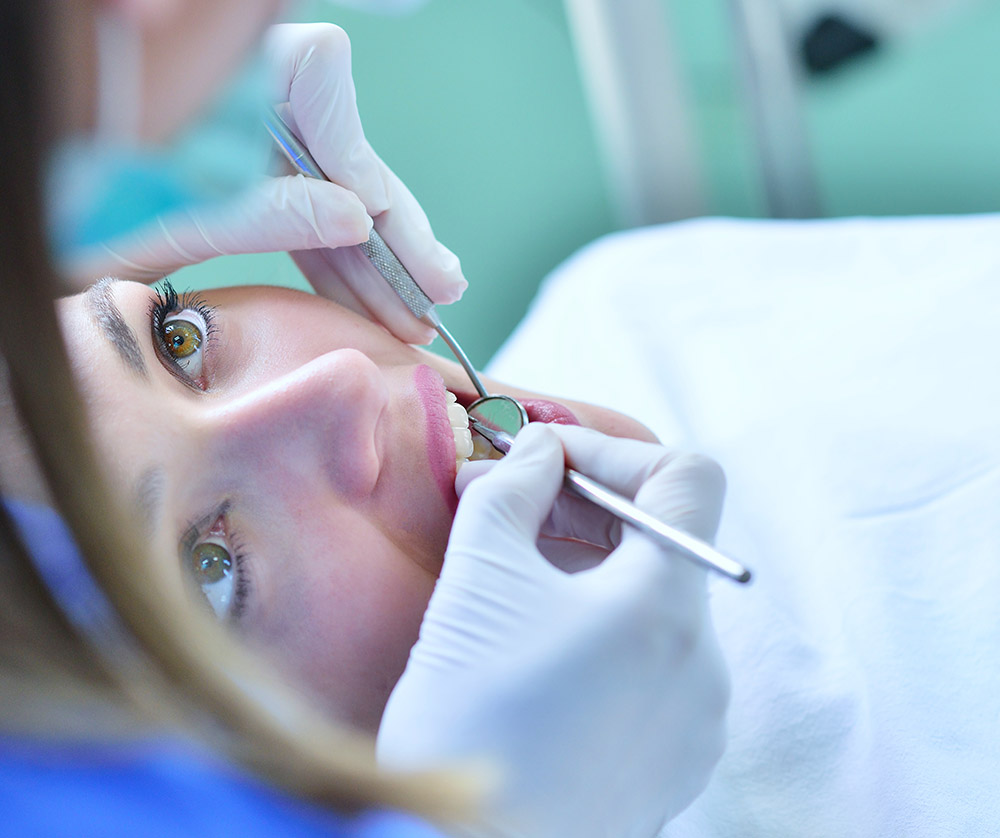 Do you know how to stop gingivitis? Does your mouth bleed when you brush your teeth? Noticing plaque and tartar above the gumline? Gingivitis, an inflammation of the gums, appears as the first sign of someone at risk for periodontal disease. Join us in learning how to stop Gingivitis.
Do you know how to stop gingivitis? Does your mouth bleed when you brush your teeth? Noticing plaque and tartar above the gumline? Gingivitis, an inflammation of the gums, appears as the first sign of someone at risk for periodontal disease. Join us in learning how to stop Gingivitis.
At some point, a dentist has no doubt warned you about it before, but you should take gum health seriously. If left unchecked, a domino effect of oral damage progresses, often resulting in the loss of one’s teeth and increased risk of serious health conditions, including heart disease, stroke, diabetes, respiratory infections, and other afflictions. Preventing that from happening is worth 3 to 5 minutes of your time, twice a day, right?
A survey reported in the Journal of the American Dental Association found that a majority of adults have gingivitis. This suggests that people aren’t taking good enough care of their teeth beyond occasional cleanings with their dentist. With that in mind, our dentists near Collegedale TN offer five ways to stop gum disease and the damage caused by gingivitis:
The American Dental Association recommends taking the time to brush your teeth in the morning and before bedtime. Flossing should happen during one of those cleaning sessions at home. It’s easy to forget or disregard if you’re in a hurry, but we should make oral health an important part of our daily routine.
Gingivitis starts with plaque accumulating around the gumline. People often neglect the gums when brushing, but you can easily attack both areas at the same time by angling your toothbrush at a 45-degree angle. You might also occasionally “scrape” the tongue with your toothbrush to remove bacteria and toxins.
Copyright: fsstock / 123RF Stock Photo
Oddly, finding a dentist is sometimes one of the last things people look into when they move to a new area. They find their dry cleaner, child's school, family doctor and favorite restaurants before their dentist. However, seeing a dentist can be very important to your overall health. There are many things to consider when searching for a new dentist. Below are a few things to consider.
If you use Google to research "dentists near me", Google will provide you with a screen filled with options split into 3 sections.
Google Reviews and other 3rd party review sites are a good, unbiased way to learn about a dentist and how their patients feel about the staff, overall experience and more. Third party sites publish all reviews - the good, the bad and the ugly. Consumers know the reviews are legitimate. That is why 8 out of 10 consumers trust online reviews as much as personal recommendations.
Research the dentists' websites to make sure that they offer services that meet your needs. Some dentists specialize in certain areas, while others may offer a wide range of services that meet the needs of your entire family -- from pediatric dentistry to senior dental services. You might also learn about their staff and informative blog posts.
You trust your friends and family, and they might be able to recommend a really good dentist. However, you'll still want to do some basic research to make sure their recommendation meets your needs as far as specific services beyond standard teeth cleaning.
Check to be sure that the dentist near you is part of professional dental organizations such as the ADA, Academy of General Dentistry and the Dawson Alumni Association - Dedicated to Complete Care Dentistry.
After you have done your research, and have been to visit the dentist for the first time, you can ask yourself questions such as:
If all went well, you should feel confident that you did indeed "find the best dentist near me".
Copyright: maxpro / 123RF Stock Photo